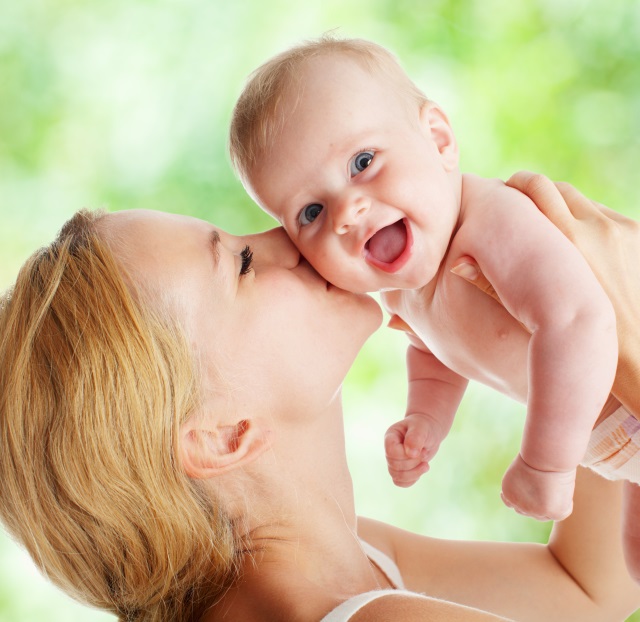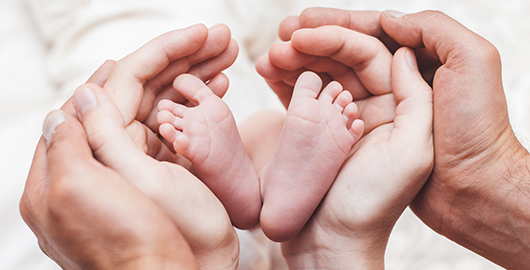Postpartum depression involves an onset of depressive traits in a new mother due to hormonal changes, general fatigue, and the responsibility of becoming a parent. Treating postpartum depression with placenta encapsulation is a natural and holistic method that can help the new mother cope with these unsettling feelings that can sometimes arise after birth.
The birth of a child can all come together to create a whirlpool of emotions, which are difficult to control.
Women who deal with postpartum depression are not rare. Over 20% of all mothers in America have faced postpartum depression at one point or another in their lives (Department of Public Health).
Postpartum depression can lead to a troubled state of mind, where the new mother is unable to care for her child because of the depressive symptoms and how overwhelming they can be.
This is where something called placenta encapsulation can be used as a natural preventative method or a solution for treating postpartum depression, and can be useful in helping the new mother cope.

What Is Placenta Encapsulation?
This is an age-old birthing tradition that has been passed down over many generations of Chinese mothers and is considered a key part of Chinese medicine in treating postpartum depression. It is regarded as nutritional and can be a highly effective means of regaining one’s health and well-being after birth.The core premise of placenta encapsulation is to use the placenta as a nutritional supplement after it has been eliminated from the body.
To begin the process of encapsulating the placenta, a systematic steaming and grinding of the mother’s placenta takes place. The reduced and naturally processed placenta is then dried and rendered in capsule format, which Is easily ingested.
Treating Postpartum Depression – Naturally
The big question involves treating postpartum depression and its symptoms. What does placenta encapsulation do for new mothers who are looking to stay healthy? It can help with maintaining hormonal changes in the body and increasing CRH in the body (stress reducer). A lot of the symptoms can be exacerbated because of stress and how it envelopes one’s mind after birth. It is a combination of benefits with this treatment, which come together to form a comprehensive solution for treating the depression that can happen postpartum.
Benefits Of Placenta Encapsulation
Let’s break down the benefits on offer with placenta encapsulation for treating postpartum depression. It is fine to have a wide-ranging look at this treatment, but what are the core benefits it gives a woman who has just delivered a child?
The uterus will increase in size as a woman progresses through each trimester. It is a natural physical reaction to the growing fetus inside. However, what happens after the baby has been delivered? There is a natural reduction immediately, but many women don’t get back to how it was before pregnancy. This can be distressing and lead to troubling physical concerns.
With placenta capsules being consumed, the nutritional value of the placenta can release oxytocin into the body. It is oxytocin which is responsible for helping the uterus reduce in size and help it to return to how it was pre-birth. Now, one may wonder why it matters to have this physical change take place?
This is a good question. The impact is not through the actual physical changing of your uterus. Instead, it is the impact it has on the rest of your body that matters. Oxytocin is also responsible for helping bond with your newborn child and accept the responsibility of what is going to be a lifelong relationship.
Additional benefits include a normalization of iron levels in your body. Women often note reduced iron levels in their blood after pregnancy. There are multiple fluctuations taking place and doctors will assess for this during various stages of one’s pregnancy.Placenta encapsulation will make sure your iron levels can retain normalcy as needed in the long-term. This is why women prefer to take the capsules.
How To Obtain the Placenta Capsules?
Who will be handling the placenta when it has been eliminated from the body? Placenta encapsulation specialists will carry out the accumulation, packaging, and processing of your own placenta. It will be done in an organized and safe manner once the process begins.It is important to remember each state has different laws as to what is permitted with placenta encapsulation. It is best to speak with a local specialist to determine exactly how your state views placenta encapsulation.
There are multiple techniques for how placenta can be consumed, but capsule (or pill) is the most efficient option right now.
Safety
The placenta has numerous benefits, but a new mother will never want to take a chance with her health and rightly so. A solution that poses a risk to one’s health is never meaningful. Is that the case with the placenta?
No, there is no risk of taking this in pill form. The placenta is being emitted from your own body and is, therefore, a natural option for treatment. It is one of the safer choices a person can use to combat postpartum depression. This is an important factor to consider because the generic medications provided to women do come with risks. You are not trying to treat with dangerous medications with sometimes severe side effects.
Medications can cause dizziness, vomiting, and various other side effects that are not seen with a natural, placenta-based treatment. For most women, it becomes a battle between a natural option and one that is chemical-based.
With postpartum depression, you should carefully consider the risks associated with chemical-based options. Those are short-term solutions, which may not bode well over the long term. Therefore, a natural solution may be one that is far better in what it provides and how it affects your body.
Please speak with a medical professional before you decide to move forward with placenta encapsulation. It is a well-researched topic and one that has been around for generations. It is pertinent to speak with a professional to discuss all of your options and see what is best for your body.
You should also be looking into any personal requirements you might have based on urine and blood samples taken after pregnancy. Remember, no two cases are alike. In the end, placenta encapsulation is one of the most powerful means of treating your symptoms with postpartum depression. Being a new mother is challenging, but it is important not to let your medical condition get in the way of enjoying time with your child after 8-9 months of pregnancy.
Be sure to ask up about placenta encapsulation for treating postpartum depression. If you’d like to find out more or just want answers from a home birth expert, give Carmen a call at 719-499-6231 or use our contact form by clicking HERE.
Research Links
http://www.idph.state.il.us/about/womenshealth/factsheets/pdpress.htm

